Insiders and analysts predict the 3D printing trends to watch in our latest series of articles focused on the future of 3D printing.
In this edition of Sliced, the 3D Printing Industry news digest, we cover the latest business developments and partnerships in the 3D printing sector.
Today’s edition includes several 3D printing partnerships and acquisitions, a new resin 3D printer in the US, novel 3D printing materials, and a software update designed to enable lightweight printable structures.
Read on for the most recent updates from Modest Company, The Steam Foundation, Aconity3D, Exploding Kittens, Glowforge, Conify, Intech, Prototek, Mechnano, B9Creations, Recreus, CoreTechnologie and more.
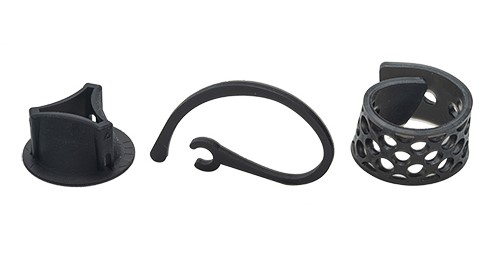
New partnerships and acquisitions in additive manufacturing
Kicking off with the latest business deals in additive manufacturing, 3D printer manufacturer Farsoon has announced a distribution partnership with Modest Company’s new additive manufacturing division 3DTIV Tech to expand into the Middle East. As part of the deal, 3DTIV Tech will represent Farsoon in the United Arab Emirates (UAE), Saudi Arabia, Qatar, Kuwait, Bahrain, Jordan, Oman, Tanzania and Kenya. The company will also establish a new Additive Manufacturing Demonstration Center in Dubai, which will feature five Farsoon 3D printers.
“As a company with diversified activities, we are pleased to offer Additive Manufacturing machines to our product line and aim to be one of the pioneers in providing Selective Laser Sintering and Melting systems for plastic and metal parts in the Gulf and East African regions,” said Ali Akbar Khimjee, Director of 3DTIV Tech.
Elsewhere, 3D printer provider Makerbot recently teamed up with The Steam Foundation to make 3D printing education more accessible in the US. The California-based nonprofit offers free workshops that teach 3D printing, robotics, graphic design, and coding, as well as developing programs to help 3D printing become more mainstream in schools. As part of the partnership, Makerbot donated 3D printers and materials to help the organization on its mission.
“When we ran the 3D printing club, we saw how excited students were for the chance to use the Replicator+. For some of them, it was the first time they had ever seen a 3D printer. We started The Steam Foundation to give more students the chance to learn about 3D printing,” said Aadhav Prabu, co-founder of The Steam Foundation. “We’re fortunate to work with MakerBot, a company which has the same commitment toward 3D printing in education as we do.”
Sigma Labs, an additive manufacturing software developer, has announced a new partnership with metal 3D printer manufacturer Aconity3D. The former’s PrintRite3D in-process quality assurance has now been certified to work with the latter’s metal 3D printers and will be available as a standard option on Aconity3D’s online configurator platform.
“I am very pleased to announce our partnership with Aconity3D. Aconity3D’s customized and modular additive manufacturing systems are an ideal use case for PrintRite3D,” said Mark Ruport, President and CEO of Sigma Labs. “We believe their unique approach to building systems in a wide variety of possible machine configurations to meet end users’ specific needs combined with our in-process quality assurance solution will help enable industrial manufacturing at large scale and compatible costs.”
Exploding Kittens, an LA-based gamemaker, has teamed up with 3D printer OEM Glowforge to combine non-fungible tokens (NFTs) with 3D printing in an innovative new way. Together, the firms are offering limited-edition 3D printable NFTs for one of Exploding Kittens’ recent card games – Happy Salmon.
There are 10 unique NFTs in total and they can be used to 3D print a collectible hardwood box using Glowforge’s laser 3D printing technology. NFT owners will either be able to print the designs themselves or have Glowforge mail out a print from its facility in Seattle. Exploding Kittens is set to give the NFT designs away in a free contest on its social media pages.
Conify, a powder manufacturing firm in Greece, recently bought an iFusion SF1 powder bed fusion 3D printer from Intech Additive Solutions. The small-format laser-based system features a build volume of 150 (dia) x 180mm and is primarily designed for the low-volume production of mid-size metal parts. The firms will work to develop new alloys for use with the 3D printer while improving Intech’s existing 3D printing technology.
Finally, on-demand digital manufacturing firm Prototek has announced the acquisition of manufacturing service provider Sacramento EDM & Waterjet. The deal will see Prototek take over two manufacturing facilities in Rancho Cordova, California, providing over 26,000 square feet of floor space with a wide variety of CNC machining capabilities. This includes 5-axis milling, turning, and waterjetting.
“The addition of Sac EDM and our acquisition of Midwest Prototyping in July propels us to achieving our goal to creating a one-stop digital manufacturing solution with superior levels of quality and service,” said John Pless, Partner at TruArc Partners and a Director of Prototek. “This is the beginning of creating a platform able to meet customer demands in an Industrial 4.0 world.”
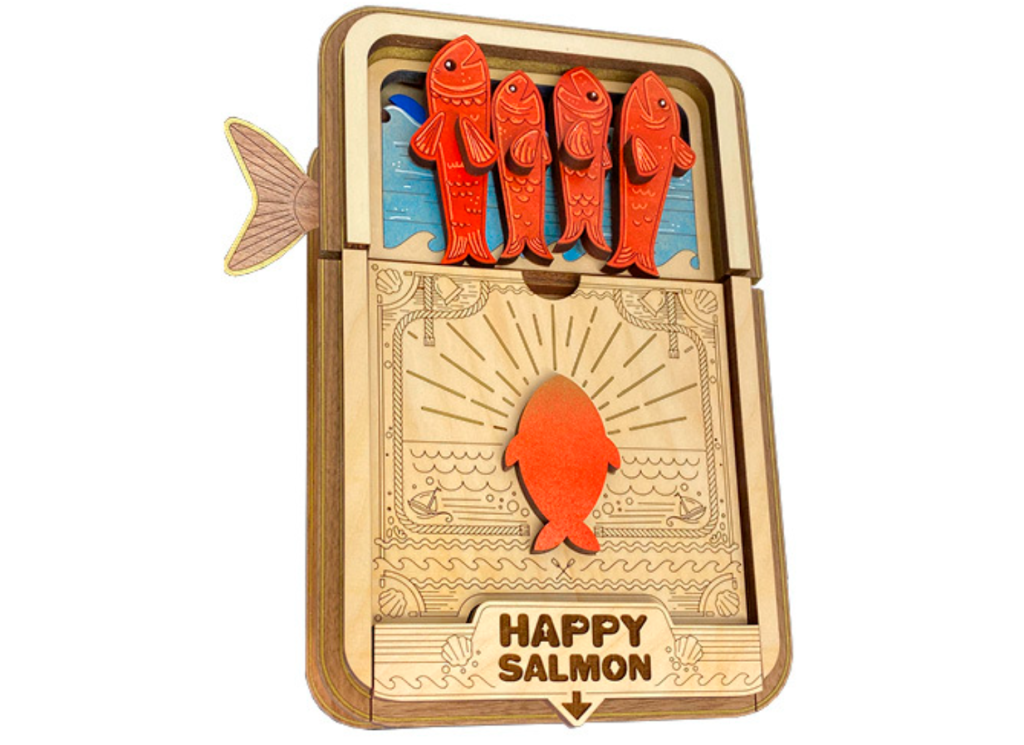
Photocentric’s LC Opus makes US debut along with new ESD-safe resin
Following a successful release in the UK, LCD 3D printer manufacturer Photocentric has now launched its resin-based LC Opus 3D printer in the US. Sporting a 310 x 174 x 220mm build volume and an XY resolution of 81 microns, the LC Opus is the company’s fastest 3D printer to date. Designed for use in the workshop, the professional-grade system is suitable for a wide variety of general applications but is particularly well-suited to the dental sector.
“We wanted to build a reliable and versatile printer that was easy to use and delivered great performance,’’ says Paul Anfinson, CEO of Photocentric. “It provides customers with a speedy, simple and versatile solution that is equally at home in a dental laboratory or a workshop. With its fast cure speed, low running costs and impressive build volume, LC Opus is an excellent all-rounder.”
Additionally, the company also recently partnered with smart materials firm Mechnano to launch a new electrostatic discharge-safe (ESD) 3D printing resin. Thanks to Mechnano’s proprietary MechT technology, the material contains carbon nanotube additives that also deliver enhanced strength, making it suitable for a plethora of electronics manufacturing applications. According to the partners, the new resin can be used to 3D print IC trays, part retrievers, grippers, ESD hand tools, and more.
“We’re delighted to partner with Mechnano to deliver what we believe will be a terrific innovation for the electronics manufacturing industry when paired with our proficiency in resin development,” adds Anfinson. “Damage caused by ESD is a huge issue in this sector, and this solves a previous challenge when it came to additive manufacturing, with our nanoengineered resin not only strengthening the product but also imbuing the material with the necessary ESD properties.”
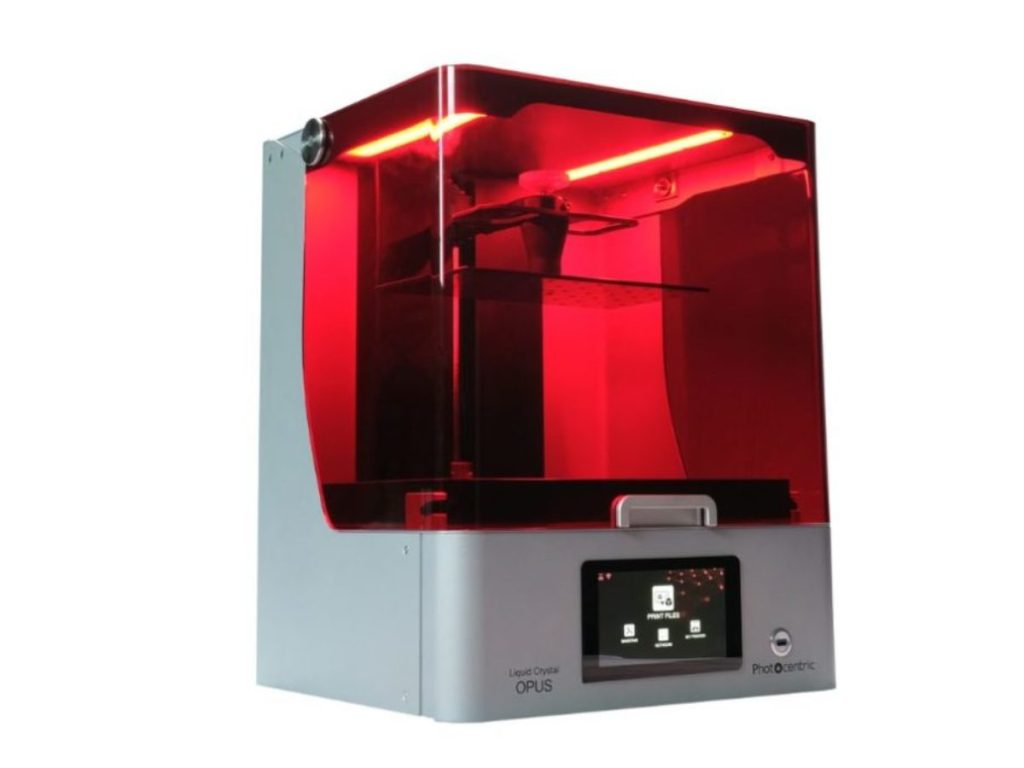
New materials from B9Creations, Recreus and 3D4Makers
In other materials news, B9Creations recently launched its own elastomeric, medical-grade silicone 3D printing resin. BioRes – Silicone is a biocompatible offering designed to enable skin contact applications in sectors such as medical and consumer goods. The material is ISO 90993 certified for prolonged skin contact (up to 30 days). Use cases include headphones, hearing aids, wristbands, and other wearables.
Kevin Herrera, a Senior Engineer at Johnson & Johnson, said, “This material has really opened up our design space. And it’s also saving us a ton of money because we aren’t using pure Teflon, and now we’re able to quickly reiterate designs. So, if there’s a shift in our fixture, we can always compensate and easily make a new one. It has been great for us.”
Elsewhere, 3D printing filament manufacturer Recreus launched its new PET-G CF filament (carbon fiber-reinforced PET-G). The material is characterized by its excellent impact and wear resistance, high-temperature resistance, and chemical resistance. The filament features an elastic modulus three times higher and a breaking strength five times higher than conventional PET-G.
Additive manufacturing materials provider 3D4Makers also recently launched its new Luvocom® 3F PAHT KK 50056 BK FR Filament. The high-performance polyamide combines flame-retardancy, low water absorption, and high temperature resistance. Additionally, the material exhibits high chemical resistance, great mechanical properties, enhanced printability, and electrical insulation characteristics.
CoreTechnologie upgrades 4D_Additive software with lattice capabilities
Engineering software developer CoreTechnologie has upgraded its 4D_Additive CAD software with a new Nastran interface. The add-on tool grants users the ability to quickly and easily design lattice structures for 3D printable parts and validate them using simulation functionality.
Ultimately, the new Nastran interface enables the creation and optimization of complex 3D lattice geometries. The update provides tools for the easy creation of up to 20 different lattice structure types, including gyroid patterns and trabecular structures.
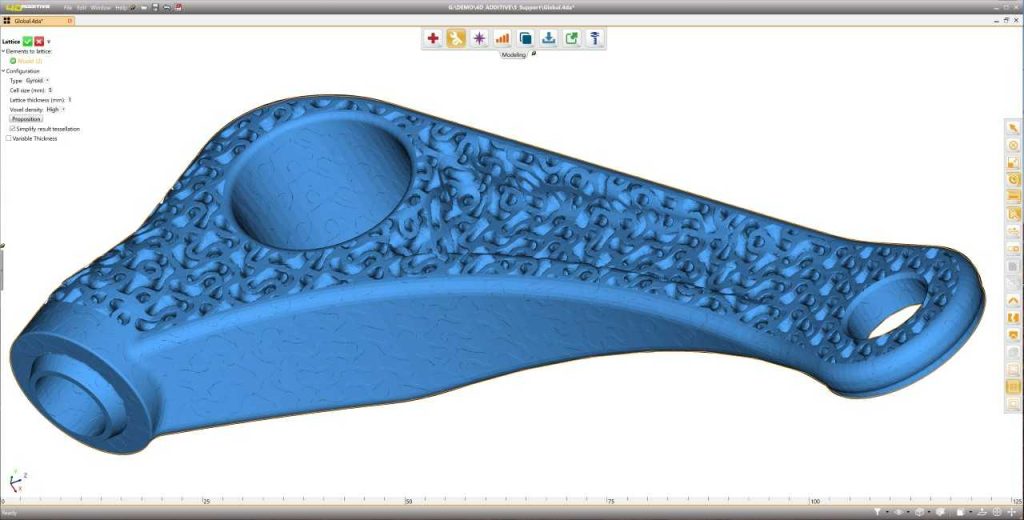
Optomec announces 60% growth in 3D printer orders
Optomec, the developer behind the Aerosol Jet and LENS 3D printing technologies, has announced a significant increase in new printer orders of 60% for the fiscal year 2021. The manufacturer’s sales spike reportedly puts its business activity well ahead of pre-pandemic levels while taking the total number of 3D printers installed to nearly 600 (across 250 customers).
“After an admittedly slow start to 2021, coincident with the global spike in COVID severity, sales quickly recovered in the second quarter and remained at a robust level through year end, despite the lag in recovery for historically fruitful commercial aviation and international markets,” said David Ramahi, CEO of Optomec. “While much of this activity was born of long-standing relationships with production customers, the relative strength of our broader pipeline makes us optimistic that the growth trend will continue into 2022 and beyond.”

Protolabs launches vapor smoothing service
Digital manufacturing firm Protolabs has announced the launch of a new vapor smoothing post-processing service for 3D printed parts. The automated technology, which is now available for PA12 and TPU-01 parts printed via SLS or Multi Jet Fusion (MJF), is designed to improve surface finishes while increasing both the impact strength and elongation of polymer parts. The post-processing approach also seals part surfaces to make them watertight and easier to clean.
Andrea Landoni, 3D printing product manager at Protolabs EMEA, said, “Whilst 3D printing allows an engineer to design and produce complex parts and is ideal for low production runs when compared to injection molding, the surface finish of the latter is far smoother. Now, using vapor smoothing, we can bridge that gap for additive manufactured parts to smooth and seal even the smallest cavities on the surface.”
Al Seer Marine launches new additive manufacturing unit
Abu Dhabi-based maritime firm Al Seer Marine has announced the launch of its new additive manufacturing business unit. The division will focus on using 3D printing technologies to manufacture parts for unmanned vessels and vehicles in-house. It will also develop large-scale 3D printed products for regional and global clients.
Guy Neivens, CEO of Al Seer Marine, added, “Al Seer Marine is deeply committed to ensuring that its value proposition is constantly evolving in meaningful and innovative ways. The company’s decision to pursue additive manufacturing is testament to the technology’s growing influence and diverse applications across a range of sectors.”
The Apprentice selects Innovative Design for TV design challenge
The Apprentice, a popular BBC TV series that pits business professionals against each other in various challenges, recently started airing its latest season in the UK. In an episode which aired earlier this month, the contestants were tasked with creating an electric toothbrush for children as part of a creative design challenge.
Product design company Innovative Design was selected to help the candidates prototype their designs, employing the use of a Stratasys J850 Prime Polyjet 3D printer to print the colorful toothbrush cases.
James Mclnerny, co-managing director at Innovative Design, said, “We wanted to ensure that the task was simple enough to complete in the tiny amount of design time we had, and the producers wanted to push the boundaries of previous series and pull off something incredible. We put together a multi-skilled team to handle the concept sketching, brush design, electronics and app development, character creation and packaging elements of the task and each team needed different designers so in the end it took quite a few of us.”
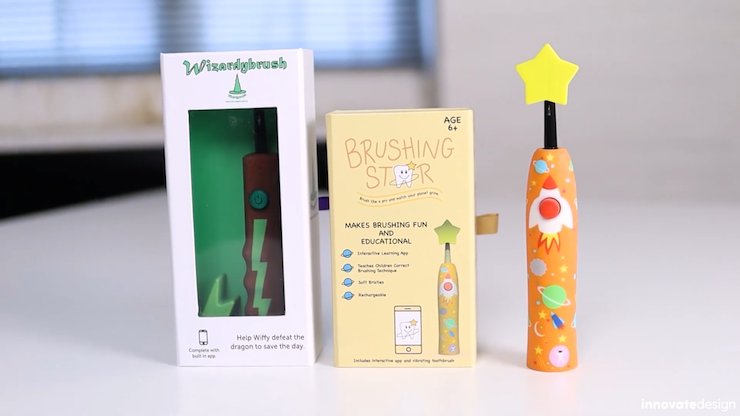
Subscribe to the 3D Printing Industry newsletter for the latest news in additive manufacturing. You can also stay connected by following us on Twitter, liking us on Facebook, and tuning into the 3D Printing Industry YouTube Channel.
Looking for a career in additive manufacturing? Visit 3D Printing Jobs for a selection of roles in the industry.
Featured image shows the Sliced logo on a 3D printed Happy Salmon collectible hardwood box. Photo via Exploding Kittens.



